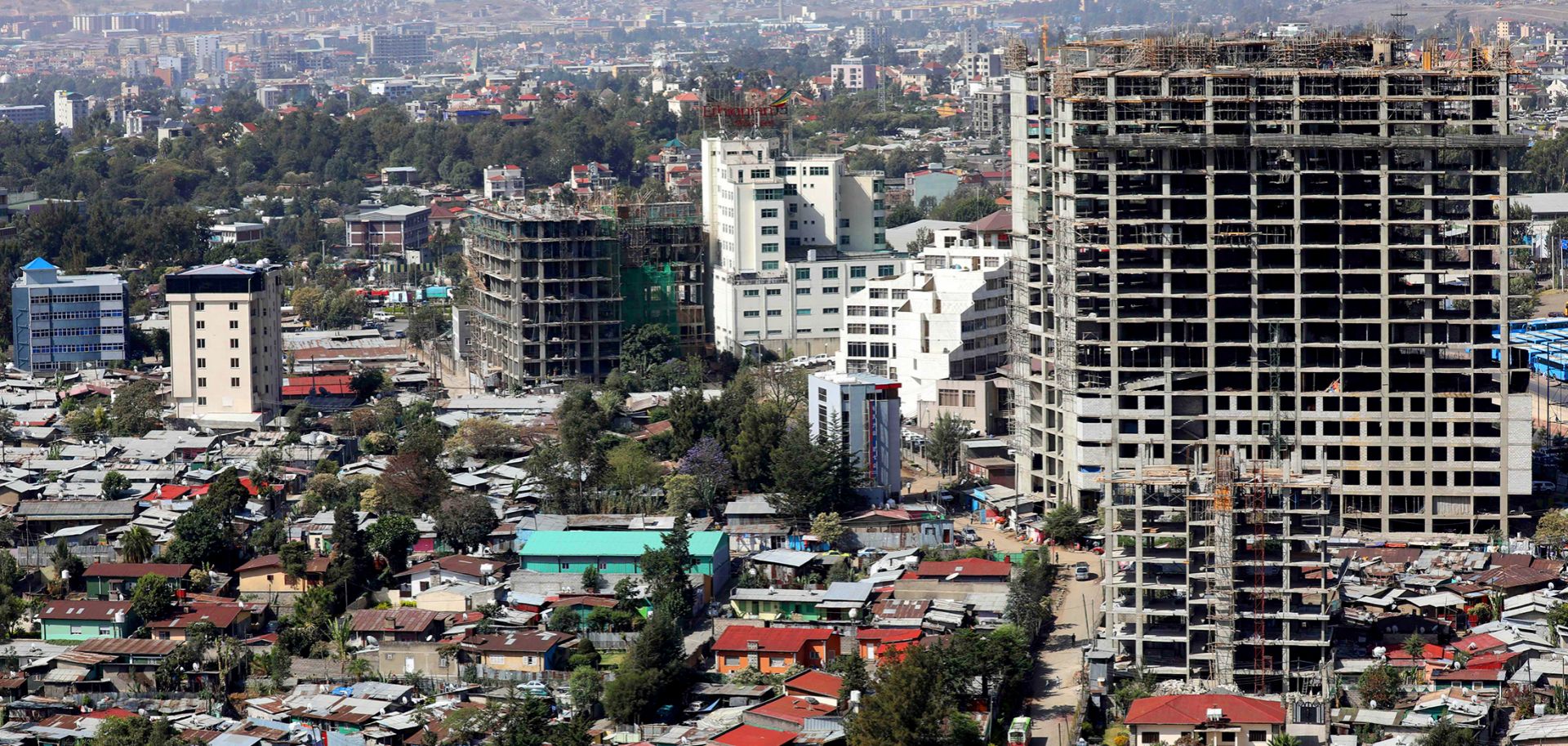ASSESSMENTS
Ethiopia Comes to a Crossroads on Economic Reform
Apr 3, 2019 | 10:00 GMT

A picture taken on March 13, 2019, shows the construction of a number of new buildings in Addis Ababa. Ethiopia's developmental state strategy has brought the country's economy this far, but Prime Minister Abiy Ahmed will have to change tack if the nation is to push on to bigger and better things.
(LUDOVIC MARIN/AFP/Getty Images)
Highlights
- Ethiopia is unlikely to totally abandon its developmental state economic model, which gives the state a leading role in fostering development but has also burdened local banks, led to increases in foreign debt levels and suppressed the private sector.
- While Prime Minister Abiy Ahmed is likely to make some progress toward liberalizing the economy, he and his allies will encounter resistance from a bureaucracy that favors growth fueled by the state rather than the private sector.
- If Addis Ababa fails in its gamble to switch to an economy driven by more private sector growth and consumption, it might not be able to capitalize on a wave of investment interest in East Africa to make the leap to the next level of economic development.
Subscribe Now
SubscribeAlready have an account?
